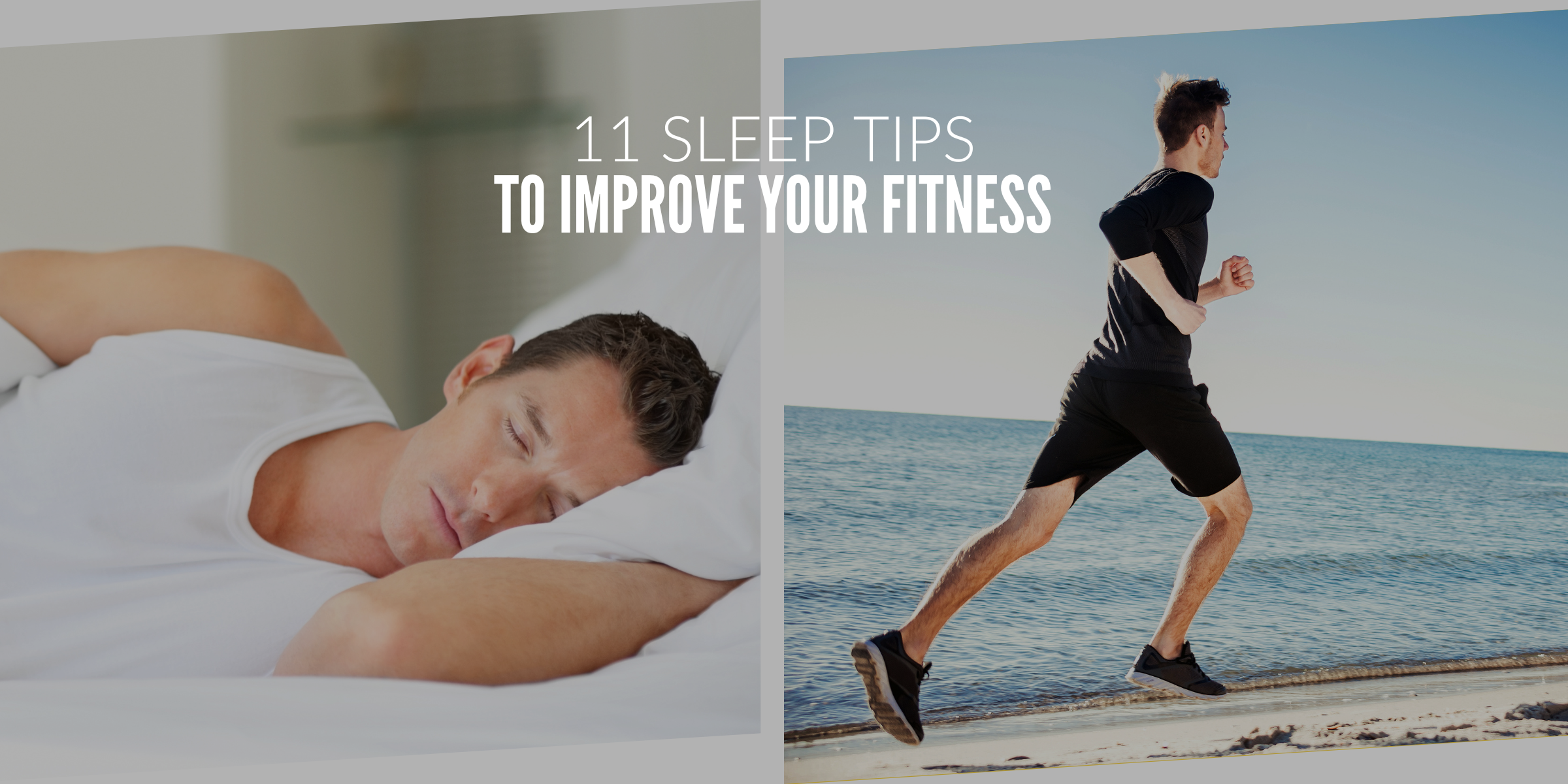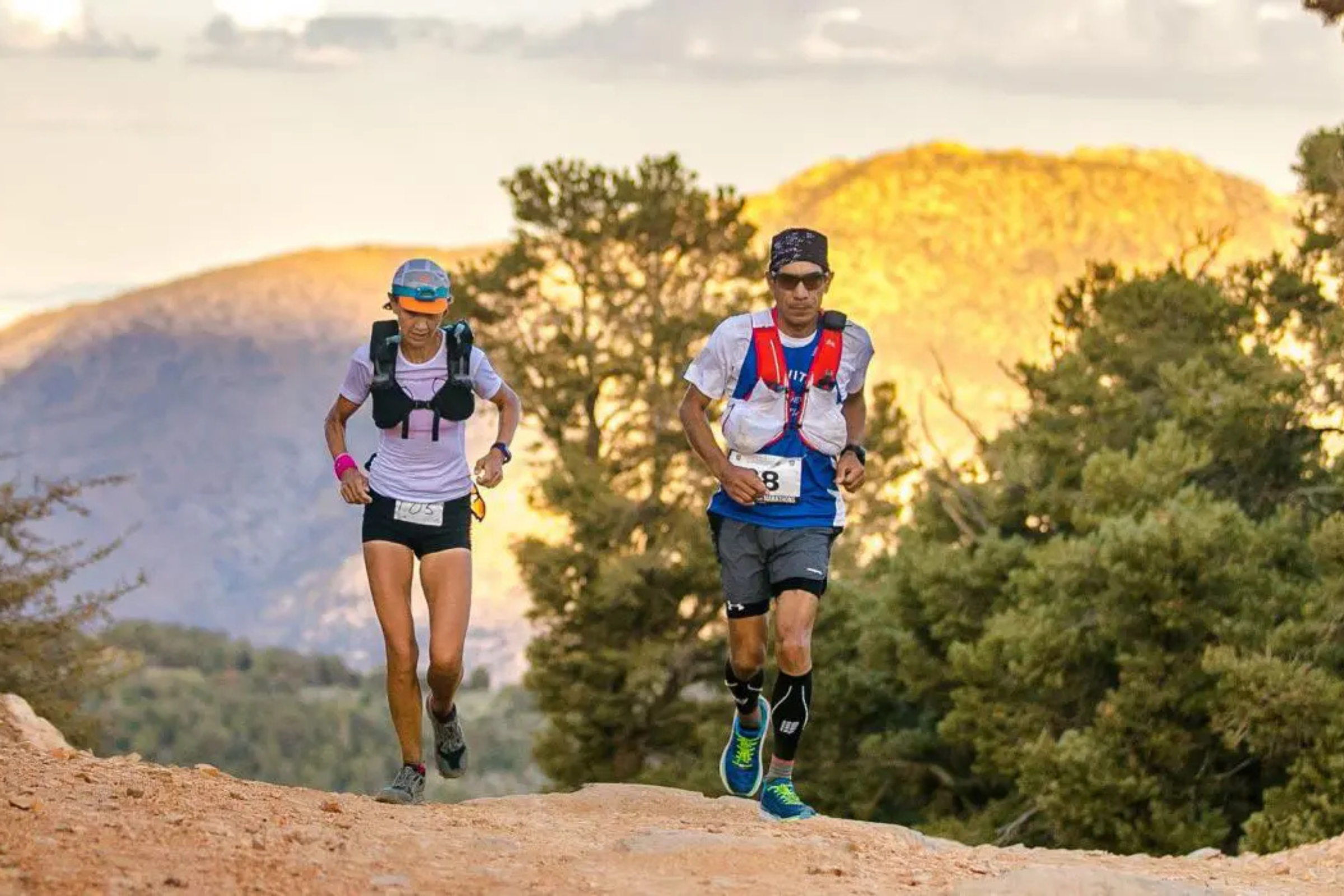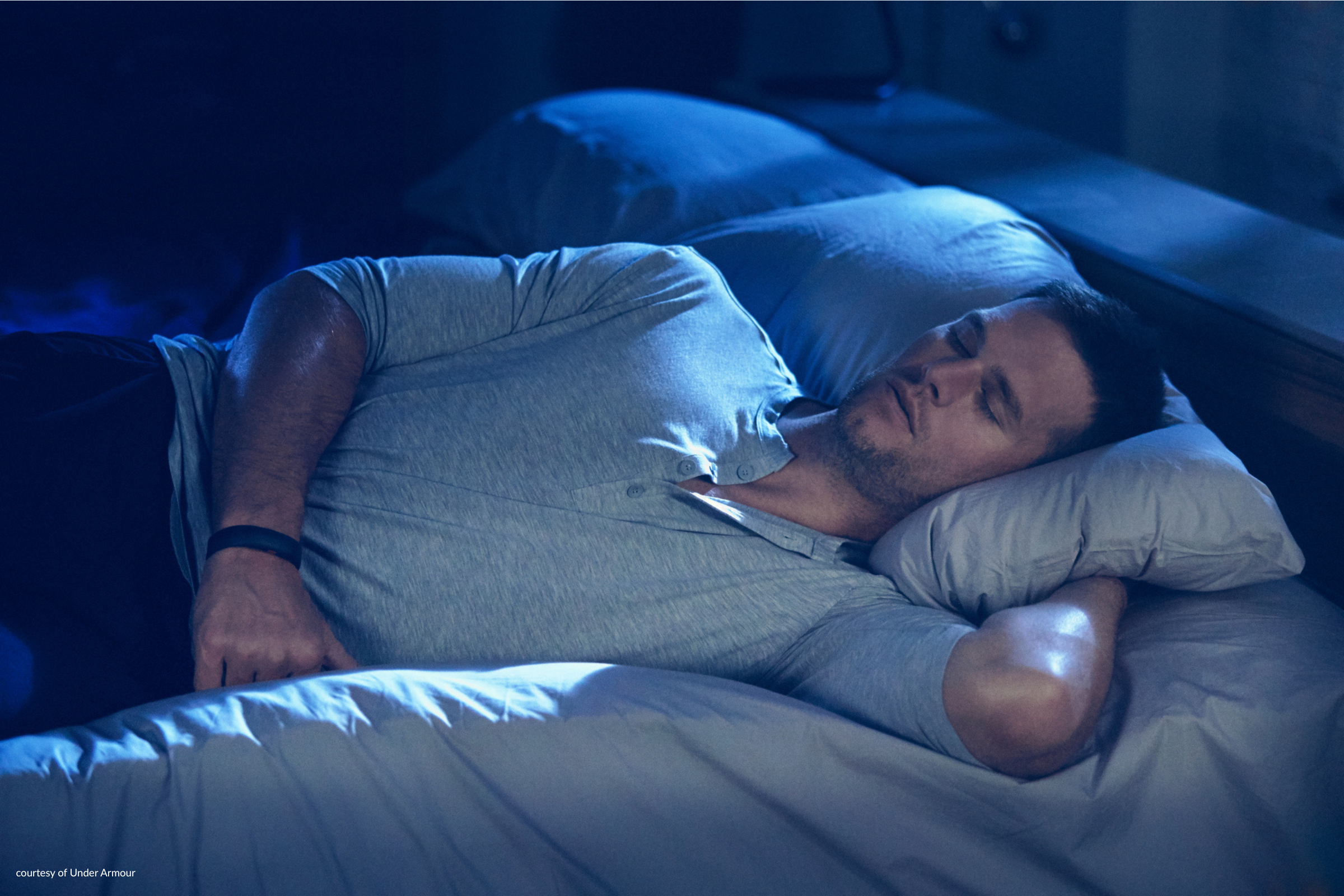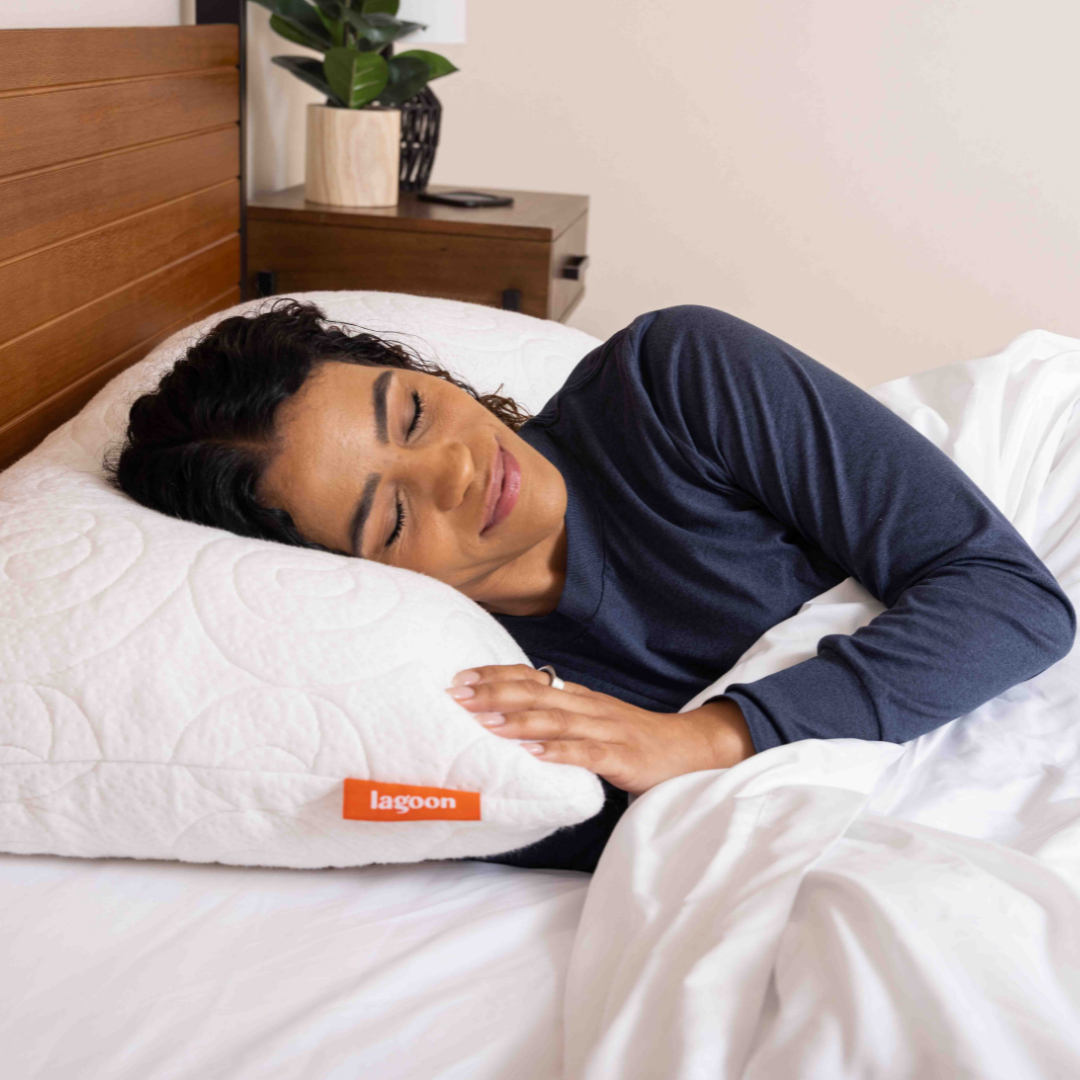Working out regularly is an excellent way to stay healthy, but it's not always easy to find the motivation to get up and go. Whether it’s an early morning run, spin class, or lifting session - the most important factor in finding the motivation for, and performing well on a daily basis is getting enough quality sleep. Research shows that adequate sleep improves athletic performance, reduces injury risk, and aids in muscle recovery. Here are ten sleep hacks that you may want to consider implementing to get the most out of your sleep, so you can reap the benefits while you workout.
1. Set a Consistent Bedtime
A consistent sleep schedule is crucial for overall health and well-being, but it's especially important for those who work out regularly, particularly in the morning. Your body likes routine and having a regular bedtime can help you fall asleep faster and stay asleep longer. Stick to a consistent sleep schedule, even on the weekends, and your body will thank you.
2. Keep Your Bedroom Cool and Dark
A cool and dark environment can help promote better sleep. According to Dr. Chris Winter, "Your body temperature naturally drops as you sleep, so keeping your bedroom cool can help facilitate that process." Additionally, keeping your bedroom dark can help signal to your body that it's time to sleep. Consider investing in blackout curtains or wearing an eye mask to keep your bedroom as dark as possible.
3. Use a Sleep-Tracking App
Using a sleep-tracking app can help you monitor the quality and duration of your sleep. Some popular, low cost sleep-tracking apps include SleepCycle and Pillow, as well as more expensive but also more accurate wearables like the Oura Ring and WHOOP. According to Dr. Salas, "A sleep-tracking app can provide insight into your sleep patterns and help identify any sleep disruptions or issues that may be impacting your overall sleep quality."
4. Practice Breathing Techniques Before Bed
Deep breathing exercises can help reduce stress and promote relaxation, making it easier to fall asleep. According to Dr. Salas, "Deep breathing techniques, such as the 4-7-8 method, can help calm the mind and body, making it easier to fall asleep." To practice the 4-7-8 method, inhale for four seconds, hold your breath for seven seconds, and exhale for eight seconds.
5. Invest in a Comfortable Mattress and Pillow
A comfortable mattress and pillow are essential for a good night's sleep. According to renowned runner and author, Dean Karnazes, "Investing in a high-quality mattress and pillow is crucial for runners, as it can help promote restful sleep and aid in muscle recovery." When choosing a mattress and pillow, consider your sleeping position and any specific needs you may have, such as back pain or allergies.
Lagoon has created a 2 minute sleep quiz to simplify finding the right pillow for you.
6. Eat a Protein-Rich Snack Before Bed
According to Dr. Holly Phillips, a medical contributor to CBS News, "Eating a protein-rich snack before bed can help regulate blood sugar levels throughout the night, preventing dips in blood sugar that can wake you up." Some examples of protein-rich snacks include Greek yogurt, nuts, or a protein shake.
7. Practice Gratitude
Studies have shown that practicing gratitude before bed can lead to improved sleep quality and increased feelings of happiness and well-being. Before you go to sleep, write down three things you're grateful for that day. This can help shift your focus to positive thoughts and emotions, promoting a more restful sleep.
This is one of my personal favorites, as I truly appreciate being able to set my mind in a positive direction.
8. Try Progressive Muscle Relaxation
Progressive muscle relaxation involves tensing and then relaxing different muscle groups throughout the body. According to Dr. Michael Breus, a sleep specialist, "This technique can help reduce muscle tension and promote relaxation, making it easier to fall asleep." Try tensing and relaxing each muscle group for five seconds before moving on to the next.
9. Listen to White Noise
White noise, such as the sound of a fan or a white noise machine, can help mask outside noises and promote relaxation. According to Dr. Alcibiades Rodriguez, a sleep specialist, "White noise can also help calm the mind and reduce racing thoughts, promoting a more restful sleep."
I use the SleepSpace app, which has some great relaxing sounds to choose from.
10. Incorporate Magnesium into Your Diet
Magnesium is a mineral that plays a key role in muscle and nerve function, making it essential for athletes. According to Dr. Mark Hyman, a functional medicine physician, "Incorporating magnesium-rich foods into your diet, such as leafy greens, nuts, and seeds, can help promote restful sleep and aid in muscle recovery." We recommend the Magnesium Breakthrough from BioOptimizers. Use code LAGOON10 for 10% off your order.
11. Mind Your Naps
While a short nap can be beneficial for some, excessive napping can disrupt your sleep schedule and lead to difficulty falling asleep at night. According to renowned runner and author, Scott Jurek, "If you feel the need to nap, limit it to no more than 20-30 minutes to avoid disrupting your nighttime sleep schedule." It’s best to nap in the late afternoon - typically around 3 - 4pm if possible.
In Conclusion
Getting enough sleep is crucial for overall health and well-being, but it's especially important when you add regular fitness to the mix. By implementing these sleep hacks, you can improve your sleep quality and take your fitness to the next level.
It's essential to remember that everyone's sleep needs are different. While these tips are backed by science and recommended by medical professionals and renowned athletes, it's essential to listen to your body and find what works best for you. Experiment with different sleep hacks and find the ones that help you achieve a restful night's sleep.
OWN YOUR REST
Sources:
-
- Sleep and Athletic Performance. National Sleep Foundation. https://www.sleepfoundation.org/articles/sleep-and-athletic-performance
- The Effects of Sleep Extension on the Athletic Performance of Collegiate Basketball Players. Sleep. https://academic.oup.com/sleep/article/34/7/943/2709361
- The Sleep Solution: Why Your Sleep Is Broken and How to Fix It. W. Christopher Winter, M.D.
- 5 Tips to Improve Your Sleep Habits. Johns Hopkins Medicine. https://www.hopkinsmedicine.org/health/wellness-and-prevention/5-tips-to-improve-your-sleep-habits
- The Relaxation Response. Harvard Health Publishing. https://www.health.harvard.edu/mind-and-mood/relaxation-techniques-breath-control-helps-quell-errant-stress-response
- The Road to Sparta: Reliving the Ancient Battle and Epic Run That Inspired the World's Greatest Footrace. Dean Karnazes.
- Czeisler, C. A., & Klerman, E. B. (1999). Circadian and sleep-dependent regulation of hormone release in humans. Recent Progress in Hormone Research, 54, 97–130. https://doi.org/10.1210/rp.54.1.97
- Mah, C. D., Mah, K. E., Kezirian, E. J., & Dement, W. C. (2011). The Effects of Sleep Extension on the Athletic Performance of Collegiate Basketball Players. Sleep, 34(7), 943–950. https://doi.org/10.5665/sleep.1132
- Chennaoui, M., Arnal, P. J., Sauvet, F., & Léger, D. (2015). Sleep and exercise: a reciprocal issue? Sleep Medicine Reviews, 20, 59–72. https://doi.org/10.1016/j.smrv.2014.06.008
- Buman, M. P., Phillips, B. A., & Youngstedt, S. D. (2014). Changes in Sleep Quantity and Efficiency in Professional Cyclists During the Tour of Qatar. International Journal of Sports Physiology and Performance, 9(4), 663–668. https://doi.org/10.1123/ijspp.2013-0299
- Halson, S. L. (2014). Sleep in Elite Athletes and Nutritional Interventions to Enhance Sleep. Sports Medicine, 44(Suppl 1), 13–23. https://doi.org/10.1007/s40279-014-0147-0
- Tipton, K. D. (2015). Nutritional Support for Exercise-Induced Injuries. Sports Medicine, 45(Suppl 1), S93–S104. https://doi.org/10.1007/s40279-015-0407-5
- Beattie, S., Currell, R., & Eston, R. (2014). Energy intake and expenditure of professional soccer players of the English Premier League: evidence of carbohydrate periodization. Journal of Sports Sciences, 32(13), 1309–1317. https://doi.org/10.1080/02640414.2014.893543
- Dattilo, M., Antunes, H. K. M., Medeiros, A., Mônico Neto, M., Souza, H. S., Tufik, S., & de Mello, M. T. (2011). Sleep and muscle recovery: endocrinological and molecular basis for a new and promising hypothesis. Medical Hypotheses, 77(2), 220–222. https://doi.org/10.1016/j.mehy.201







